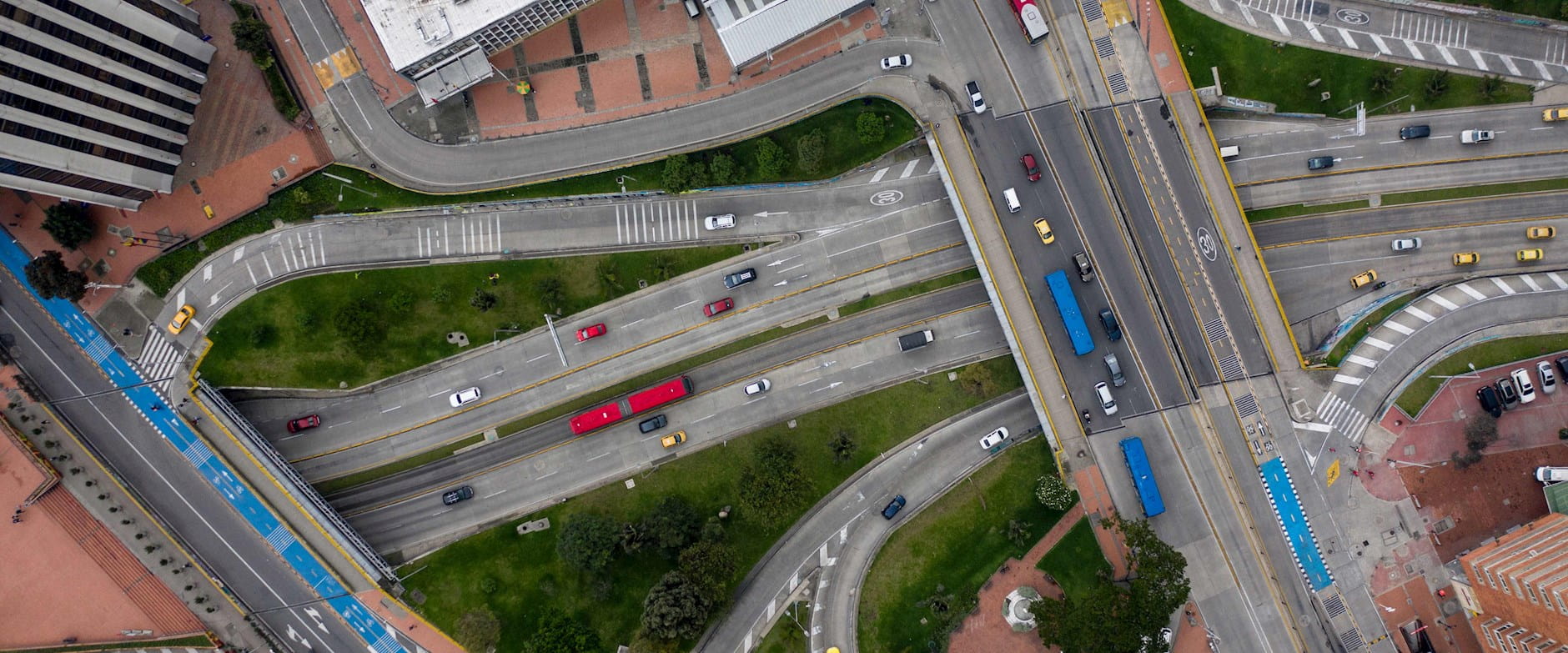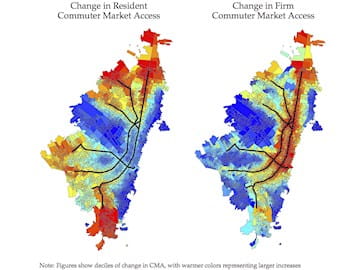
19 Teams Advance in the 2023 John Edwardson, ’72, Social New Venture Challenge
Mission-driven start-ups will spend Spring Quarter working on innovative solutions.
19 Teams Advance in the 2023 John Edwardson, ’72, Social New Venture Challenge
Nick Tsivanidis, a PhD candidate in economics at the University of Chicago Booth School of Business, recently blogged about his research for the World Bank. Tsivanidis’ research is one of several research projects the Rustandy Center for Social Sector Innovation has helped fund since 2015. The Rustandy Center awards social research funding to Chicago Booth faculty and PhD students, who investigate complex social and environmental problems using the school’s disciplined approach.

By 2050, 2.5 billion people will move into cities with the vast majority doing so in the developing world (United Nations 2014). This has the potential to lift millions out of poverty by increasing the productivity of firms and workers who benefit from agglomeration. However, rapid and unplanned growth can lead to sprawling, inefficient cities with hours wasted stuck in traffic. Governments will spend vast sums on mass transit systems to reduce commute times (McKinsey 2016), but measuring their benefits is challenging.
While individuals save time on any particular commute, their decisions of where to live and work will change as new alternatives become attractive and land and labor markets adjust. The lack of detailed intra-city data in less developed countries coinciding with the construction of large transit systems makes evaluating their causal impact even more daunting.
In my job market paper, I ask the question: how large are the economic gains to improving public transit within cities and how are they distributed between low- and high-skilled workers? I construct detailed data across 2,800 census tracts from before and after the opening of the world’s largest Bus Rapid Transit (BRT) system–TransMilenio–in Bogotá, Colombia. I develop a new reduced form methodology derived from general equilibrium theory to empirically assess TransMilenio’s impact on city structure and use this framework to quantify its aggregate and distributional effects.
Research grants are made possible thanks to funding from Andrew Stone, ’81, CEO of New York–based Petra Capital Management, and other real estate investment vehicles. For more information on social research funding at the Rustandy Center, contact Salma Nassar. Information on research funding and other support is available here. To receive updates on events and programs, as well as insights from research, sign up for the Rustandy Center newsletter.

Mission-driven start-ups will spend Spring Quarter working on innovative solutions.
19 Teams Advance in the 2023 John Edwardson, ’72, Social New Venture Challenge
This session sought answers to the question, “In the broader conversation about diversity in business, what is the context for religion?”
Innovating for Social Equity: The Intersection of Religion and Business
LivingWaters and Impact Toolbox (I-Toolbox) tie for top prize, each earning $40,000, in nationally ranked accelerator program finals.
Chicago Booth Announces Winners of 2020 John Edwardson, '72, Social New Venture Challenge